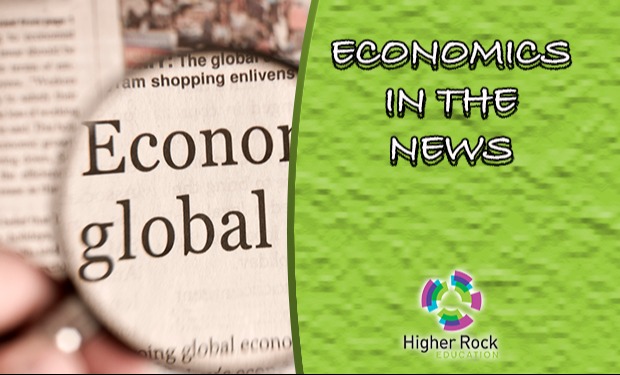
Economics in the News – July 8-14, 2024
Economics impacts our lives every day. Below are some of the top storylines from this past week related to economics.
o Google is nearing its largest-ever acquisition, as the search engine giant is in talks to buy Wiz – a New York based cybersecurity start-up. According to those with knowledge of the acquisition, the companies have valued deal at $23 billion which is nearly double Google’s previously highest paid acquisition of Motorola Mobility in 2012. Google has a history of being cautious of major acquisitions after the Motorola acquisition was sold off to Lenovo at a loss, while its $2.1 billion 2021 acquisition of FitBit faced regulatory scrutiny before it was approved.
The negotiations moved forward despite the possibility of regulators blocking the deal. For Google, the acquisition would allow it to beef up its cloud-computing division, which is behind peers such as Amazon Web Services and Microsoft Azure. Wiz would forge a connection between the Google Cloud and companies that use Wiz to safeguard data held in AWS, Azure and other cloud computing systems. [The New York Times]
o The Republican National Convention is being held this week and there will be a glaring omission. No where are the nation’s “debt” or “deficit” appear in the agenda. The omissions point to a Republican party that has transformed from one of financial restraint to one that has taken on a more debt-heavy approach under its leader, Donald Trump.
The United States national debt is approaching $35 trillion and is on pace to top $56 trillion over the next decade, according to the Congressional Budget Office. Economists have warned that if the debt burden grows too large, it will slow economic growth and could lead to economic instability. Republicans have long raised awareness over the national debt, especially when a Democrat is in the White House. [The New York Times]
o Which presumptive Presidential nominee would be better for inflation according to economists? Most economists believe inflation, the deficit and interest rates would be higher under a second Donald Trump presidency than they would be under a second term of Joe Biden. The results came from a quarterly survey of forecasters by The Wall Street Journal.
Of the 50 responses received, 56 percent believe that inflation would be higher under Trump, as opposed to 16 percent under a second Biden term. The views on inflation and interest rates appear driven by Trump’s policy preferences, specifically on trade and immigration. Trump has proposed a 10 percent across-the-board tariff on imports and 60 percent or higher tariff on imports from China. He also has plans for deportation for illegal immigrants, which would reduce the labor supply in some industries. [The Wall Street Journal]
o Sports betting companies entice consumers to their platforms with the potential to win big. But when some gamblers manage to beat the sportsbooks, the companies often limit the betting limits of the consumer – if they even take their money at all. Bettors who have been reined in say the mystery of why and when it happens is frustrating. Some suggest that betting companies should offer the same maximum wager for all bettors or explain why some bettors are subject to different limits with the apps they regularly use.
Regulators are investigating wager limits at a time when increasing attention is being paid to the opposite demographic that the sportsbooks don’t limit – the biggest losers. Executives at sports betting companies argue that those who are limited are a small fraction of their customer base and tend to be professional gamblers. The companies say that they must manage their risk in order to operate the business profitably. [The Wall Street Journal]
o Inflation on groceries is slowing and companies are facing revenue and unit sales declines, as more consumers seek value options. Two snack powerhouse brands – PepsiCo and Conagra Brands – reported lower revenues and unit sales declines during their most recent quarterly earnings reports. Grocery prices remain a concern in many households, as prices have climbed 18 percent since 2020 while household debt has also climbed.
Prices for some budget grocery items have shown signs of decline recently, including fruits and vegetables, as well as cereals and bakery products. The results from PepsiCo and Conagra Brands show that consumers are willing to buy off-brand items, instead of the established brands they are accustomed to. The value-seeking behavior is not subject to one income bracket too, as experts say that both lower and higher income earners are both seeking similar deals at the grocery store. [The Washington Post]